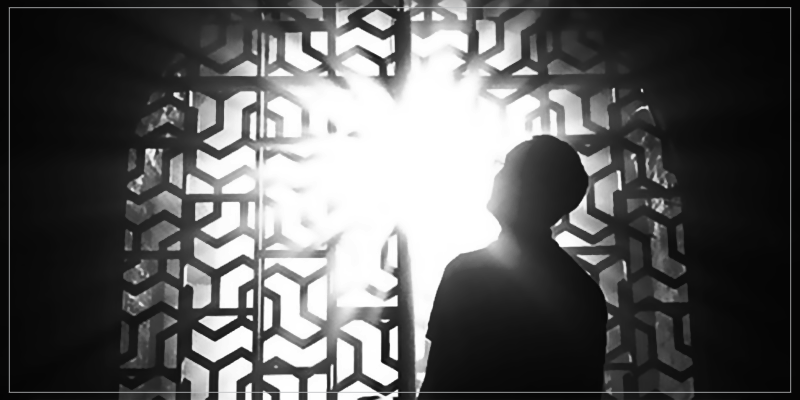When a stand-up comedian verbalizes his discontent in obscenities, it is very easy for a Muslim to move on. When Louis C.K.’s appearance on the TBS talk show ‘Conan’ echoes something we might hear in a sermon, we take pause.
In his tirade gone viral (with over 5 million views on YouTube), Louis C.K. rants against the long-term psychological effects of the need for cell phones; how the connectedness our smart phones allow us necessarily leads to alienation from the people and events immediately around us. This is an old refrain from parents and elders, but Louis C.K. goes on to argue that mobile technology disconnects us from our inner selves and our souls.
As soon as we feel sadness or emptiness coming our way, we grab our cell phones in order to relieve ourselves from emotion altogether. By giving in to our need for instant fulfillment, we end up denying ourselves the opportunity to feel any real emotion whatsoever. Only when Louis embraced sadness for a lengthy period could he feel the emptiness to his existence, and shortly afterward, the joy of being alive.
The problem Louis C.K. describes is part of our modern reality, and its underlying sentiments apply directly to our Ummah’s spiritual crisis. We pray five times a day, attend Jumu’ah, draw lines separating what is permissible from what is not, yet we still feel empty. We treat our prayers as something to get past because we want to enjoy our dinners. We look for relaxation and emotional relief in Netflix, even though as believers we know that Netflix offers us no true comforts. As we go through the motions of Islam out of practice rather than urgency, we become Mechanical Muslims.
The best of us go through a high-low cycle of spirituality and sometimes, religiosity. Occasionally, through the mercy of Allah, subhanahu wa ta’ala, we experience a spiritual high. This high can come after years of ignoring the deen, or simply after a weekend conference. During a spiritual high, we are zealous in all our forms of prayer, from salah to community service. During our spiritual peak, we find ourselves moved to tears out of shame and love, and full of regret for our struggles during the spiritual lows. Our actions mirror our inner spirituality and good character is easier to uphold.
Unfortunately, spiritual highs are unsustainable, and lows inevitably follow. Oftentimes, after converting, reverting or re-finding Islam, we burn out and don’t have the motivation to engage in acts of worship as enthusiastically as we did a short while earlier.
This cycle of spiritual highs and lows is emotionally exhausting and sometimes traumatic, so it is understandable that after a few ups and downs we attempt to distance ourselves from our beautiful struggle. We disconnect from our Creator, our faith and ourselves by becoming mechanical. We sacrifice the highs so we can avoid the inconvenience of the lows.
As Mechanical Muslims, we convince ourselves that whatever acts of devotion we are performing are sufficient; that we can get by. As we hit our spiritual lows, we comfort and reward ourselves psychologically by saying, “I didn’t go that far, I’m still good”. And as we approach our highs, we begin to believe, “I am already doing the right thing. Why should I push myself to go further?”. In reality, we starve our souls from the solace that exist only in sincere spiritual acts.
Alhamdulillah, we can get out of the high-low cycle without becoming mechanical through sustainable spirituality.
Sustainable spirituality requires greater effort but is a healthier alternative to the high-low cycle. Think of it as trying to achieve a runner’s high: after rigorous training and discipline, a runner’s high unleashes a rush of chemicals that turn the hobby into a passion. And it is easy to lose that runner’s high when not exercising the ability. Likewise, sustained spirituality has its own learning – or discipline – curve. Once past the initial stage, we still have to exert ourselves, but the rush we experience becomes the motivator and reward.
The first step to sustaining our spirituality is to use our God-given rituals to achieve spirituality rather than express the state of our emaan. It is important for us to recognize the difference between the blessings inherent in finding Islam and finding spirituality in the rituals of Islam. As mentioned, during spiritual highs, we are overcome with emotion as we repent in prayer. We need to connect to not just the feeling of repentance, but also the motions of the act of prayer. When we pray our five daily prayers, we need to use them to fulfill their function of resolving our stress, anger and sadness, and achieving contentment, peace, and solace.
If Louis C.K. could feel so much happiness by not reaching for his phone, imagine how great we could feel if we replaced that inner void with a strong connection to Allah subhanahu wa ta’ala!


